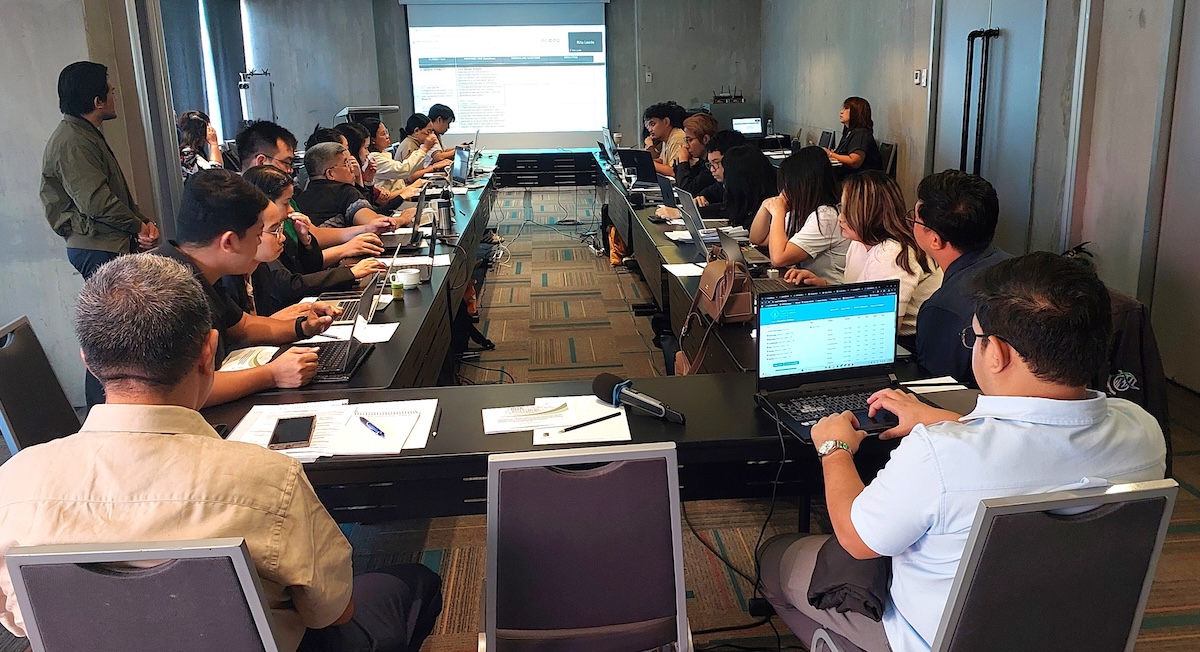
Philippine Regulators Work on Refining Risk Assessment Report on GM Plant and Plant Products
November 26, 2025| |
A three-day writeshop on Updating the Risk Assessment Report (RAR) Template for Risk Assessment for Genetically Modified Plant and Plant Products was conducted on 19-21 November at B Hotel in Quezon City. Regulators from the Department of Agriculture, Department of Science and Technology, Department of Environment and Natural Resources, and experts from partner institutions are working together on updating the RAR form to align with guidelines and standards on risk assessment set by Codex Alimentarius, Organization for Economic Co-operation and Development (OECD), and Agriculture and Food System Institute (AFSI).
In his opening message, Dr. Paul Limson, Director of the DA Biotech Program Office, emphasized the importance of improving risk assessment tools for products of modern biotechnology. "We need to make sure that science is used responsibly, that decisions are fair and science-based, and that our systems remain grounded even as the field continues to evolve. Updating the RAR template directly affects how we keep our food safe, how we protect the environment, and how we build trust in the technologies entering our agriculture", he said.
The update of the RAR is timely considering recent developments in plant breeding innovations and rich implementation experience on science-based regulation and risk assessment of GM plants and products, said Dr. Abraham Manalo, Executive Secretary of the Biotech Coalition of the Philippines. The existing RAR form has been in use for the past 20 years.
Dr. Rhodora Romero-Aldemita, Executive Director of ISAAA Inc., lauded the initiative of the DA BPO in spearheading the activity and its partners. The "excellent exercise allows us to capacitate and systematically improve the biosafety assessment system in expediting and making transparent recommendations", she added.
The refinement allows the review, assessment, and streamlining the current biosafety assessment form. This collaborative undertaking reinforces the country's effort in strengthening the food and environmental safety assessment of modern biotech products.
For more information, contact the DA Biotech Program Office at biotechpiu@yahoo.com.
| |
You might also like:
- Experts Propose a Global Model for One Risk Assessment of GM Plants
- Problem Formulation:How to start your riskassessment so you canfinish it successfully
- Technology Specifics Key to Efficient Risk Assessment, Says Experts
Biotech Updates is a weekly newsletter of ISAAA, a not-for-profit organization. It is distributed for free to over 22,000 subscribers worldwide to inform them about the key developments in biosciences, especially in biotechnology. Your support will help us in our mission to feed the world with knowledge. You can help by donating as little as $10.
-
See more articles:
-
Plant
- CRISPR Alters Chromosome Numbers in Plants
- Precision Breeding Act Now Live in the UK
- Philippine Regulators Work on Refining Risk Assessment Report on GM Plant and Plant Products
-
Animal
- Targeted Inheritance of Sex Offers a New Method to Improve Animal Breeding
-
Food
- Single Gene Discovery Promises Better Tea Taste and Yield
- CRISPR Fungus: Protein-Packed, Sustainable, and Tastes Like Meat
-
Environment
- UN Climate Change Conference Highlights Role of Agrifood Systems in Climate Action
- University of Waterloo Researchers Turn to Biotechnology to Combat Plastic Pollution
-
Read the latest: - Biotech Updates (February 18, 2026)
- Gene Editing Supplement (January 28, 2026)
- Gene Drive Supplement (February 22, 2023)
-
Subscribe to BU: - Share
- Tweet

